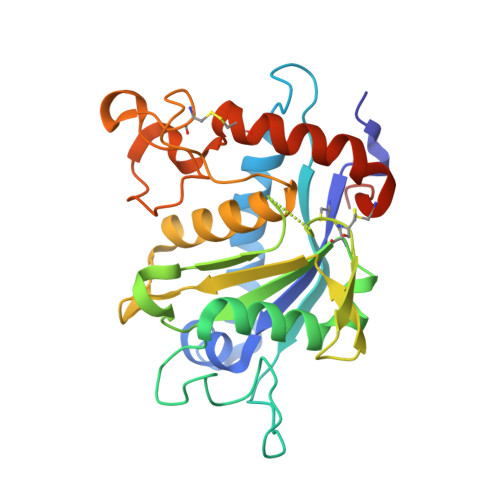2-(2-Aminothiazol-4-yl)pyrrolidine-based tartrate diamides as potent, selective and orally bioavailable TACE inhibitors.
Dai, C., Li, D., Popovici-Muller, J., Zhao, L., Girijavallabhan, V.M., Rosner, K.E., Lavey, B.J., Rizvi, R., Shankar, B.B., Wong, M.K., Guo, Z., Orth, P., Strickland, C.O., Sun, J., Niu, X., Chen, S., Kozlowski, J.A., Lundell, D.J., Piwinski, J.J., Shih, N.Y., Siddiqui, M.A.(2011) Bioorg Med Chem Lett 21: 3172-3176
- PubMed: 21458257
- DOI: https://doi.org/10.1016/j.bmcl.2011.01.002
- Primary Citation of Related Structures:
3O64 - PubMed Abstract:
TNF-α converting enzyme (TACE) inhibitors are promising agents to treat inflammatory disorders and cancer. We have investigated novel tartrate diamide TACE inhibitors where the tartrate core binds to zinc in a unique tridentate fashion. Incorporating (R)-2-(2-N-alkylaminothiazol-4-yl)pyrrolidines into the left hand side amide of the tartrate scaffold led to the discovery of potent and selective TACE inhibitors, some of which exhibited good rat oral bioavailability.
- Department of Chemistry, Merck Research Laboratories, 320 Bent Street, Cambridge, MA 02141, USA. chaoyang.dai@merck.com
Organizational Affiliation:





















